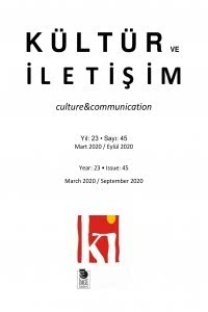Türkiye: Modern mi, postmodern mi? Kemalist modernleşmenin soykütüğü, ekolojisi ve "Gelmekte Olan Demokrasi"
1923'de Cumhuriyetle birlikte yeniden doğuşunda Türkiye'nin imgelemi, Avrupa aydınlanma düşüncesinin gelişime ve modernlik idealleri içinde biçimlendi. Teleolojik Tarih anlayışının modernist kurgusu tabi konumda olanların da ufkunu tanımlamakta hegemonik olmuştur. Evrensellik iddiası taşıyan bu Tarihin soykütüğü incelendiğinde, onun pek çok farklı anlatıdan sadece biri olduğu görülür. Gelişmenin ve modernleşmenin beraberinde getirdiklerini toplumsal ve ekolojik açıdan değerlendirdiğimizde başarısızlıkların ve gerçekleşmemiş vaatlerin oluşturduğu çöp abidesi ile karşılaşırız. Bir dizi toplumsal hareket ve gelişme ile birlikte bunlar, varsayılan "evrenselleri" ve modernist kesinliklerin ve kimliklerin ayrılmaz birliği ve bütünlüğünü yapıbozumuna uğratan postmodern bilincin gelişmesine yol açmıştır. Bugün modernliğin bozulmaya uğramış varsayılan bütünlüğünün, çoktandır farklılık ve ötekilik tarafından işgal edilmiş olduğu görülür. Demokrasi, bizim politik olarak farklılıklarla ilişki içinde yaşayıp düşünmemize olanak sağlar. Aslında, ikili karşıtlıklarla sorgulama alışkanlığının getirdiği biçimi ile demokrasi, modern Batıda yaşayanların sahip oldukları ve oriental Türkiye'nin sahip olmadığı bir şey değildir. Karşıtlıklarla düşünmenin oluşturduğu bölünmenin demokrasi karşıtı ve kolonileştirici doğasına yanıt verecek olan bir "gelecek olan demokrasi" kavramıdır. Bu kavram modernliğin bütünlüğünü tamamlamaktan çok onu aşarak ve onu yeni olasılıklara ve birleşimlere açar.
Anahtar Kelimeler:
Kemalizm, modernleşme ve demokrasi, antagonist bölünmeler
Turkey: Modern or Postmodern? The Genealogy and Ecology of Kemalist Modernization and a Democracy to Come
Turkey, in its modernist incarnation as the Republic of Turkey in 1923, is a country whose identity has been reformed in the image of the European Enlightenment idea is of progress and modernity. The modernist imaginary of a teleological History has been hegemonic in defining the horizon of the imagination of even its detractors. However, the genealogy of this supposedly universal history exposes it as one story among others. Social and ecological evaluation of the record of development and modernization uncovers a monumental mess of failure and unfulfilled promises. Together with a series of social movements and developments, these have engendered a postmodern consciousness that deconstructs the alleged universals, and the indivisible unity and integrity, of modernist certainties and identities. The supposedly uncontaminated unity of the modern in the present is shown to be always already inhabited by difference and otherness. Democracy enables us to think and live with this relation ofa difference within political terms. However, democracy is not something that those in the modern West have and those in oriental Turkey lack, in the taken-for-granted familiarity of that binary opposition. It is, rather, "a democracy to come." one that responds to the undemocratic and colonizing nature of this very divide,"a democracy to come'' that exceeds rather than completes the unity of the modern. and opens it up to new possibilities and new configurations across the colonial divide.
Keywords:
Kemalizm, democracy and modernization, antagonist divide,
___
- Unknown Author (1996). "Document: Forced Evictions and Destruction of Villages in Turkish Kurdistan." Middle East Report (26): 8-9.
- Anderson, B. (1983). Imagined Communities: Reflections on the Origin and Spread of Nationalism. London: Verso.
- Atatürk, M. K. (1959). Atatürk'ün Söylev ve Demeçleri. Ankara: Türk Tarih Kurumu.
- Atatürk, M. K. (1982). Quotations from Mustafa Kemal Atatürk. Ankara: Ministry of Foreign Affairs, Republic of Turkey.
- Bauman, Z. (1992). Intimations of Postmodernity. London and New York: Routledge.
- Bauman, Z. (1996). Modernity and the Holocaust. Ithaca, New York: Cornell University Press.
- ISSN: 1301-7241
- Yayın Aralığı: Yılda 2 Sayı
- Başlangıç: 1998
- Yayıncı: İmge Kitabevi Yayınları
Sayıdaki Diğer Makaleler
International Communication Association Toplantısı
Ötekinin Söylemi ya da Öznenin Lacancı Algılanışında Dil
Ürün Tasarımı ve Anlam: Gösterge ve Sinyal olarak Nesne
Amerika' da Eğitim Dili Politikaları ve "Öteki" Diller
